Online Public Register a Hit at Employer
Conference
The unveiling of an online version of
the public register was the highlight of the College’s second Employer Conference on
the Ontario College of Teachers Act, held in Toronto May 18.
The public register was established in
1997. The launching of the electronic version makes it available to school boards from the
College’s web site. It gives employers immediate access to information about a
teacher’s qualifications, their standing with the College and details of any
disciplinary procedures that may have been taken against them.
"This resource should shorten at
least one step in your hiring process," said College Council Chair Donna Marie
Kennedy, in announcing the new service.
School boards from across the province
sent 114 representatives to the conference which also offered sessions on teacher
qualifications, the College’s certification process, Temporary Letters of Approval,
the complaints and investigation process and the Council elections to be held in October.
The conference included the option of attending a session in which Assistant Deputy
Minister of Education Norbert Hartmann spoke about proposed changes to the Education
Act.
Registrar Margaret Wilson, one of the
main presenters, highlighted a number of issues related to teacher qualifications and
certification that have raised concerns over the past year for the College, school boards
and teachers.
- Many teachers are working on expired
certificates, and it is the responsibility of their employer – the school board
– to see that the teacher brings their College registration and qualifications up to
date.
- Teachers who take a leave of absence
should be reminded that if they let their College membership lapse, they will not be
eligible to pay into the pension plan.
- Employers should always check a
prospective employee’s references because the College cannot release information
about a teacher under investigation until the investigation and disciplinary process is
complete.
- Occasional teachers must be fully
qualified and in good standing with the College.
Deputy Registrar Joe Atkinson also
emphasized the school boards’ legal obligation to ensure that all teachers are fully
qualified for the work they do, whether it is teaching in the classroom or filling an
administrative post.
"The nature of the contract we
have with the public can be boiled down to three elements," he said. "Teachers
must be qualified and they must be competent, and our schools must be safe."
Participants’ evaluations of the
conference indicated overwhelming approval of the content and organization, offering
comments ranging from "well run
and informative" to "please continue to offer this type of opportunity."
"We’re very pleased that the
conference went so well," said Registrar Margaret Wilson. "We work closely with
school boards to keep people up to date on the process and requirements for registering
with the College. This conference, which we hope to make an annual event, gives us an
excellent opportunity to provide focused information on what we know are the
employers’ biggest headaches."
Five New Members Join the College Council
Samy Appadurai, Douglas Brown, Janet
Cornwall, Martin Kings and Elayne McDermid have been appointed as public representatives
on the College’s Council effective May 1, replacing Sandi Bell, Kathleen McFadyen,
Bill Rogers, John Slade and Allen Pearson.
Council Chair Donna Marie Kennedy
expressed Council’s appreciation for the five members whose term has expired.
"We are grateful to you for the leadership and experience you have brought to
Council. Your contribution has helped shape the College and greatly benefited the teaching
profession in Ontario," said Kennedy.
"I also want to welcome the new
members. We are looking forward to working together on what promises to be a busy agenda
in the coming months."
Samy Appadurai
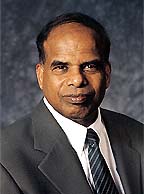 Samy Appadurai
brings to Council a unique international experience and solid community involvement.
Appadurai’s career spans three decades as head of education, school principal, head
of social science, consultant and co-ordinator in Sri Lanka, Ethiopia, Nigeria and Canada.
Samy Appadurai
brings to Council a unique international experience and solid community involvement.
Appadurai’s career spans three decades as head of education, school principal, head
of social science, consultant and co-ordinator in Sri Lanka, Ethiopia, Nigeria and Canada.
Appadurai is an active community
member, serving as president of the Tamil Cultural Centre of Toronto and the Hindu
Religious Society of Ontario and director of a Tamil newspaper. He is also is the author
of four books.
Douglas Brown
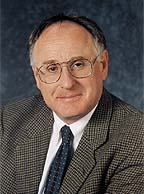 Douglas Brown
brings to Council 31 years of experience as principal and secondary school teacher with
the Bluewater District School Board. Brown also served as president of the Ontario
Secondary School Teachers’ Federation in Bruce County and chair of the Town of
Southampton Police Commission.
Douglas Brown
brings to Council 31 years of experience as principal and secondary school teacher with
the Bluewater District School Board. Brown also served as president of the Ontario
Secondary School Teachers’ Federation in Bruce County and chair of the Town of
Southampton Police Commission.
Brown is a commissioner with the
Education Relations Commission and received an Ontario Crime Prevention Award in 1986 for
his involvement in alcohol and drug awareness programs.
Janet Cornwall
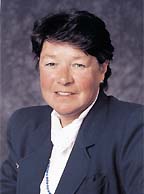 Janet Cornwall
brings to Council an in-depth understanding of self-regulatory bodies and the teaching
profession. From 1989 to 1993, Cornwall was Registrar of the Board of Directors of
Physiotherapy – now the College of Physiotherapists of Ontario – and has
completed the course work for a Masters of Education focusing on evaluation at the Ontario
Institute for Studies in Education at the University of Toronto. She has also published
articles and made conference presentations on medical and self-regulatory issues.
Janet Cornwall
brings to Council an in-depth understanding of self-regulatory bodies and the teaching
profession. From 1989 to 1993, Cornwall was Registrar of the Board of Directors of
Physiotherapy – now the College of Physiotherapists of Ontario – and has
completed the course work for a Masters of Education focusing on evaluation at the Ontario
Institute for Studies in Education at the University of Toronto. She has also published
articles and made conference presentations on medical and self-regulatory issues.
Cornwall is also actively involved as a
volunteer for organizations like the Canadian Guide Dogs for the Blind, the Canadian
Cancer Society and the Canadian National Institute for the Blind.
Martin Kings
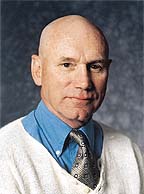 Martin Kings retired from a lengthy career as a teacher, elementary school
principal and private school owner to jump into a new career as a businessman with his son
in the computer industry.
Martin Kings retired from a lengthy career as a teacher, elementary school
principal and private school owner to jump into a new career as a businessman with his son
in the computer industry.
Kings holds a PhD in education from
Walden University in Minnesota.
In addition to his solid professional
experience and credentials, Kings brings Council a strong sense of dedication to community
organizations focusing on youth. Since 1975, he has been involved in youth basketball and
other sports and is a past president of the Kitchener Optimist Club.
Elayne McDermid
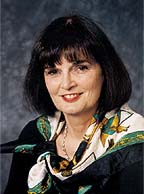 Veteran educator Elayne McDermid joins Council with a solid combination of
professional experience and diversified community involvement.
Veteran educator Elayne McDermid joins Council with a solid combination of
professional experience and diversified community involvement.
McDermid owns a computer service
company and works as a Microsoft computer programs teacher. She previously worked in the
public school system as a teacher-librarian and a language arts, French, mathematics and
science teacher.
McDermid’s community involvement
spans over 25 years and includes a host of organizations in the Brampton area as well as
the Women of Achievement Awards, the Salvation Army, Big Sisters and the United Way.
Ethical Standards Approved
The Ethical Standards for the
Teaching Profession, which outlines the professional values and ethical
responsibilities expected of teachers, was approved by the College Council at its meeting
June 8.
The document will be presented at the
next Council meeting in October for inclusion in the College bylaws. The Ethical
Standards for the Teaching Profession will be used in pre-service and in-service
training programs and will form the basis for accreditation of these programs.
The ethical standards document was
developed during the past two years through extensive consultation with teachers and other
educators and stakeholder organizations. The ethical standards approved by Council is an
updated version of the document that appeared in the March 2000 edition of Professionally
Speaking.
A copy of the document
can be downloaded from the College web site or is available on request
from the Standards of Practice and Education Unit at 416-961-8800,
ext. 859 or toll-free in Ontario at 1-888-534-222, ext. 859.
Council Approves Teacher Mobility Provisions
The Council has approved labour
mobility provisions of the Agreement on Internal Trade/Teaching Profession that will
enable teachers certified in Ontario to acquire a licence to teach anywhere in Canada.
Last year, the education ministers for
all provinces and territories in Canada discussed a new agreement that will enable a
teacher who is qualified in one Canadian province or territory to obtain certification in
other parts of the country. The agreement includes the possibility of conditional
certification to protect the specific standards of provincial jurisdictions.
Under the terms of the agreement, the
certification process for teachers trained in one jurisdiction and wanting to teach in
another will be better defined and streamlined. All applicants seeking a teaching
credential anywhere in Canada must hold a valid teaching credential from a Canadian
province or territory, have completed a teacher education program of a minimum of 30
semester credit hours of course work and a practicum, provide all documents required by
the province or territory in which they are seeking certification and satisfy any
requirements with respect to a teacher being a "fit and proper person," currency
of practice and language proficiency.
Teachers fulfilling these requirements
will be able to obtain an interim certificate in any jurisdiction. The interim certificate
will be valid for a reasonable time period in which the teacher must complete successfully
any outstanding academic or professional requirements of their new jurisdiction to be
eligible for a permanent teaching credential.
The Council of Ministers of Education,
Canada (CMEC) reached agreement in June 1999 on the new labour mobility provisions. The
agreement replaces one that expired in 1996 and covered only eight provinces. British
Columbia, Saskatchewan and the territories will now also be part of the new system.
Under the terms of the agreement,
approved by Council at its June 9 meeting, each jurisdiction will publish their
certification requirements each year on a web site and will also make them available for
posting on the CMEC web site at www.cmec.ca
next